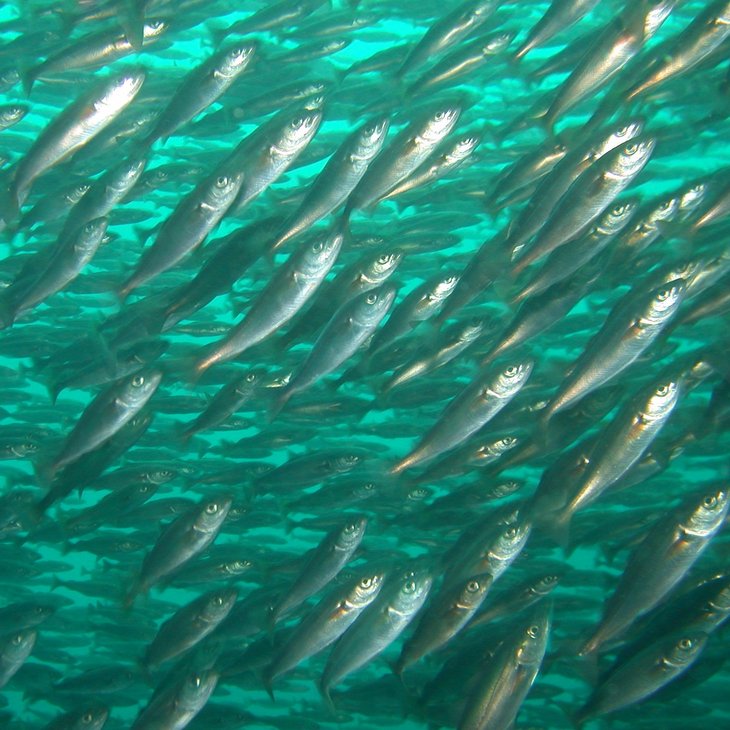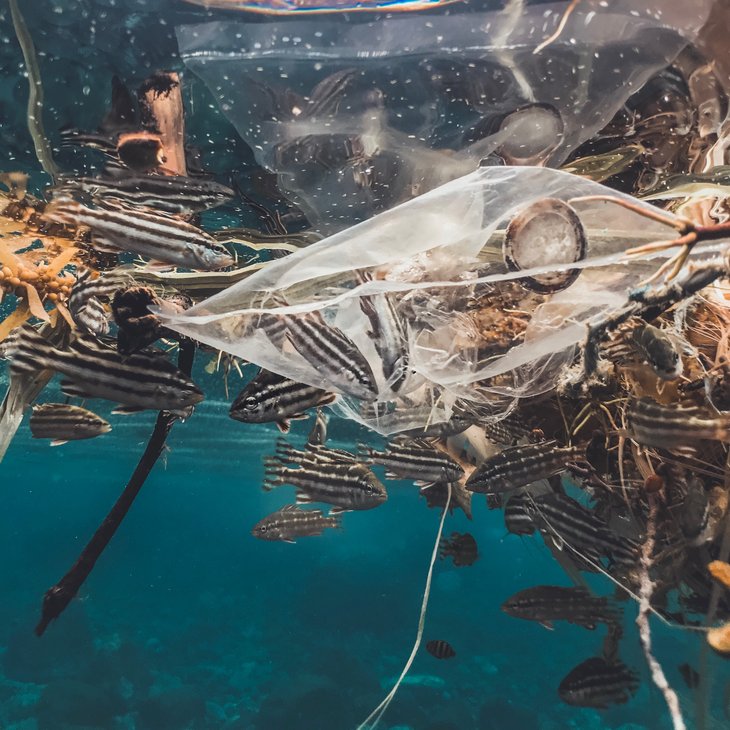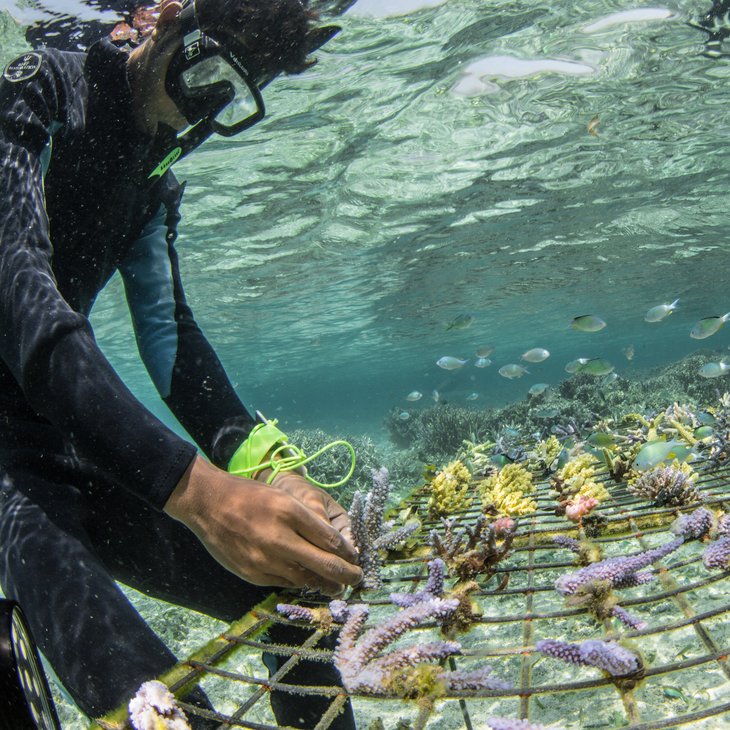
Genetic diversity refers to the genetic makeup of individuals within a species. In other words, it is the internal diversity of living beings, and thus the ability of organisms within a species to pass on different genes to their offspring. A species with numerous different genes is said to have high genetic diversity.
The interaction of these genes with the outside world is important for species development because the appearance and characteristics of living beings are influenced by genetic and environmental factors.
High genetic diversity among individuals and populations is therefore crucial for the long-term survival of a species. The greater the variation, the greater the probability that they will be able to adapt to changing environmental factors, such as warmer water, new diseases, or new predators.
2. When important tools are suddenly missing
The genetic information encoded in the genes of an organism can be thought of as a toolbox. When faced with a new challenge, this box may contain tools (genetic information) that can be used to accomplish the new task.
Not all the tools are always needed. However, the more tools there are in the box, the greater the chance that the organism will be able to perform many different tasks. Especially if the tools are of different types. In this case, organisms or species can adapt better to new environmental conditions or develop defence mechanisms against new diseases or predators more quickly. This basic rule applies to creatures on land as well as those living in the sea.
Against this background, the results of a meta-study published in the journal Nature in January 2025 are worrying. In this study, researchers show that the genetic diversity of 628 species analysed has declined over the past 30 years. The species included land animals and plants as well as marine organisms and fungi from almost all regions of the world.
3. Genetic diversity is being lost almost everywhere
For their study, the scientists collected and systematically analysed specialist information on the genetic diversity of species, potential risks resulting from human activities, and the potential benefits of conservation and management actions. This enabled them to recognise how the genetic diversity of the species studied has changed over time - particularly in the case of species that have been hunted and fished by humans or whose habitats have been destroyed by humans. They were also able to draw conclusions about which conservation measures are effective in halting the loss of genetic diversity.

The results speak for themselves: the genetic diversity of the species analysed has decreased - regardless of the original duration of the study, the statistical method used, the type of genetic marker or the metric of genetic diversity used. It also did not matter whether the species studied were on the Red List of Threatened Species or not. Nevertheless, the core result was confirmed.
Even when the researchers questioned whether human intervention had played a role. The genetic diversity loss was detectable, regardless of whether hunting, fire, habitat destruction or disease had been documented or not. This result suggests that genetic diversity is declining across all species, almost as a hidden development in the background. Nonetheless, most of the species analysed had experienced human disturbance during the study period.
The researchers observed a decline in genetic diversity in most of the analysed habitats on land. These accounted for 90 per cent of the data. In marine habitats, the results were somewhat less clear, depending on the marine region analysed. The experts identified the greatest loss of genetic diversity for birds. Mammals followed in second place. The researchers found little to no losses for dicotyledonous plants (Magnoliopsida), insects (Insecta) and ray-finned fish (Actinopterygii).
4. How can genetic diversity be preserved?
Preserving the genetic diversity of species requires more than just protecting habitats, the researchers write. According to the study, losses in diversity could be demonstrably halted or even slightly reversed if
- destroyed or degraded habitats were restored,
- diseases and pests were actively combated,
- the population of selected species was controlled and
- animals or plants from other populations were introduced into a population with low genetic diversity (supplementation).
Supplementing the gene pool of a population by adding individuals from other populations was the only conservation action associated with a significant increase in genetic diversity compared with cases in which no action was reported – at least for non-threatened species.

According to the authors, the results of the meta-study allow two conclusions to be drawn:
- Further genetic diversity loss in the near term is likely if human societies do not take action urgently.
- We currently have sensitive methods and datasets for detection of genetic diversity change, which enable us to target biodiversity conservation actions effectively.
“Even the subtle negative trends of genetic diversity change that we report here should raise concern,” the researchers write. This is because the resilience of populations decreases with diversity, as does the capacity for natural ecosystems to sustain vital ecosystem services that are essential for human survival.
Once genetic information is lost, it is not easily recovered. This is because the genetic toolbox of a species is only filled with new tools as mutations occur - in other words, as new gene combinations arise and the resulting traits become established. This process takes a long time. The results of the study should therefore trigger increased conservation management efforts to halt genetic erosion before further losses occur.
(1) see: https://unimelb.libguides.com/whichreview/metastudy
Further Links:
Elizabeth Pennisi (2025): Global Study shows species are losing diversity, Science, Vol 387, Issue 6733. doi: 10.1126/science.zo96oy1 www.science.org/content/article/wide-range-earth-s-species-are-showing-decline-diversity
Shaw, R.E., Farquharson, K.A., Bruford, M.W. et al. Global meta-analysis shows action is needed to halt genetic diversity loss. Nature (2025). https://doi.org/10.1038/s41586-024-08458-x








